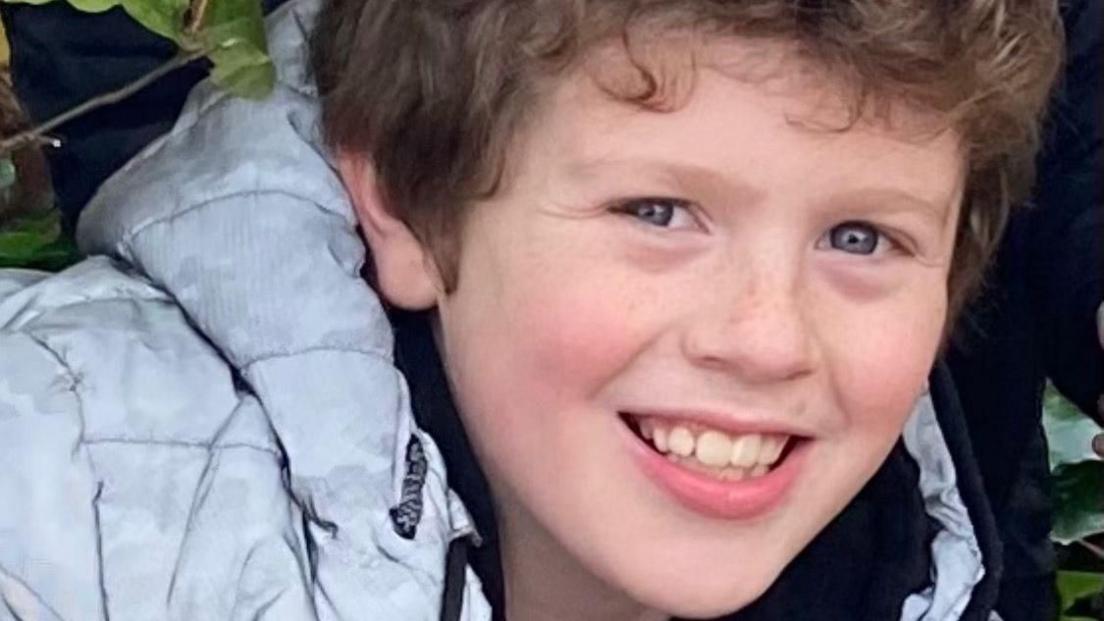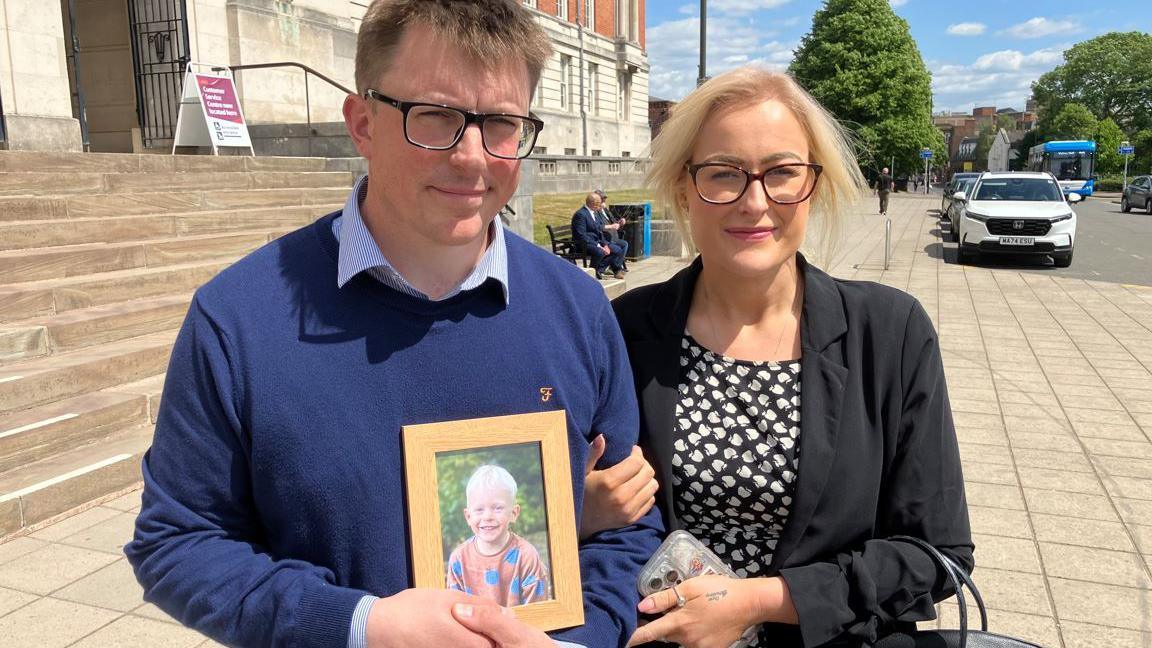Mum of boy who died of sepsis felt 'fobbed off'

Exeter Coroner's Court was told a doctor at Derriford Hospital thought Theo Tuikubulau had an ear infection
- Published
The mother of a three-year-old boy who died from sepsis a day after he was discharged from a Plymouth hospital felt she was "being fobbed off" by doctors, an inquest has been told.
Exeter Coroner's Court heard a doctor at Derriford Hospital believed Theo Tuikubulau had an ear infection and sent him home in a taxi to Torpoint with his mother Kayleigh Kenneford on 7 July 2022.
Ms Kenneford told the jury Theo was a "happy, loving and affectionate little boy" who was obsessed with fire engines.
Consultant paediatrician Dr Andy Robinson said Theo deteriorated rapidly when he returned to hospital and medics tried to resuscitate him for 30 minutes.
The jury heard Theo had "cold-like symptoms" with a "snotty nose" three days before his death and was "not feeling himself".
Ms Kenneford said she called 111 but she was told ambulances were busy and a taxi could take Theo to Derriford Hospital.
'I believed the professionals'
This was stood down, however, as he was sleeping.
The following day Theo was taken to the emergency department with a rash on his chest with red dots, a temperature of 40.2C (104.36F) and deteriorating breathing.
Ms Kenneford said a doctor told her Theo, who was not drinking any fluids, had an ear infection and they were discharged at 01:20 BST on 7 July.
"I felt OK because I believed what the professionals were saying," she told the jury.
The jury heard Ms Kenneford was told Theo "might get worse before he gets better" and had been advised to give him sugary drinks.
"I felt I was being fobbed off," she told the inquest.
Theo was later rushed back to the hospital with suspected meningitis and was taken to the resuscitation area.
The inquest was told, as Theo's family were waiting in a nearby room, the same doctor who had earlier discharged him told them they were working on him.
Ms Kenneford said Dr Robinson returned later to say they had done all they could for Theo and asked them to hold his hand as life support was switched off.
She said Theo's cause of death was then given as sepsis.
Sudden deterioration
Dr Robinson said swabs were not taken from Theo because they took 36-48 hours for results to come back and it would not have aided a clinician's decision at the time.
He said Theo was not given antibiotics because they are "not without risks" and could lead to an allergic reaction.
Ms Kenneford had called the children's assessment unit on 7 July, the day before he died, and "nothing was flagged" to him at the time showing a huge deterioration by the nurse, Dr Robinson said.
He said Theo, who he described as being "exceptionally pale", was different to when he had seen him 24 hours earlier.
"He was still hot but there was no evidence of a rash when I looked," he said.
"I thought he had sepsis and was in septic shock."
He said medics struggled to get intravenous access because Theo had shut down because of septic shock and he "suddenly deteriorated" as his heart rate dropped and he stopped breathing.
He told the hearing Theo was given rescue breaths and chest compressions for 30 minutes.
Dr Robinson said in the winter months of 2022/23 there was a pandemic of Strep A cases where rapid deterioration seemed to be a feature.
Assistant coroner Louise Wiltshire asked Dr Robinson if there was a point of no return with septic shock.
He replied: "It is impossible to actively say."
The inquest continues.
Follow BBC Cornwall on X, external, Facebook, external and Instagram, external. Follow BBC Devon on X, external, Facebook, external and Instagram, external. Send your story ideas to spotlight@bbc.co.uk, external.
- Published30 April

- Published23 May

